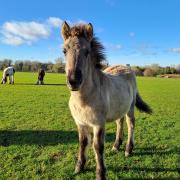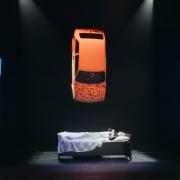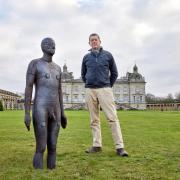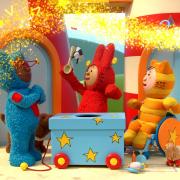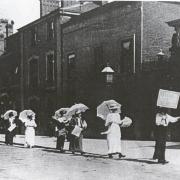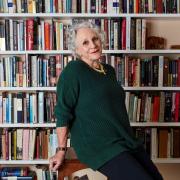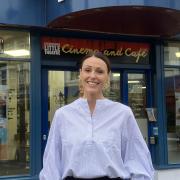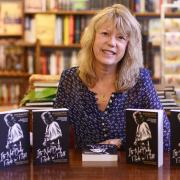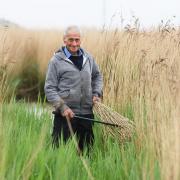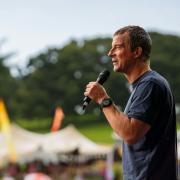If knowing about the Olympic Games was a sport then David Miller would be my tip for Gold
his eyes have seen sporting heroes, watched epoch-making matches, and followed the knockout punches of Ali, the explosive speed of Bolt, the world-beating England goals of 1966, and the golden rivalry of Coe and Ovett.
For the first time in six decades north Norfolk sports writer David Miller will not be at the Olympics – but will still be scanning the races and contests, and probably catching even more of the action via television and world-wide newspaper coverage than if he’d travelled to Brazil.
David has been reporting on the Olympics since 1960, and attended his first Games four years later, travelling alone across the Soviet Union and Siberia by train, to reach Japan. Since then he has witnessed the giddy highs and terrible lows of the Olympics, from some of the greatest physical feats ever achieved, as fastest, highest and furthest records tumbled, to the tragedies of sport hijacked by terrorists.
He is 81 now, and compiling the latest official history of the Olympics. Rewritten every four years, its half a million words and hundreds of photographs become a record of each Games.
“I would like to be there of course, just to see what the ambience is,” he says, “But in practical terms there are so many negatives about Rio, which is an awful shame because it’s the first South American Games there has ever been. I’ve been to Brazil before and the Brazilians are wonderful people. It’s the land of the samba and it would be awful if they were to be denied a celebration.”
David would love to be celebrating his own 60th anniversary. In 1956 he was in the British Olympic football training squad – but just missed out on travelling to Melbourne. However, it inspired him to rethink his future.
With a degree from Cambridge he was about to become a chemistry teacher. “And then I thought here I am, going back to school. I am 21 and I have never been anywhere, except one trip to France, seen anything, done anything,” says David.
Instead he landed a job writing up cricket scores for The Times. With every first class cricket match covered in full, the job involved fast manipulation of statistics, figures and words. It was an excellent training in accuracy and allied to David’s keen interest in sport meant he was soon a sports reporter, first for The Telegraph and then the newly launched Sunday Telegraph. As well as covering an astonishing 20-plus Olympics (summer and winter), he reported from 14 football World Cups, including the legendary 1966 final. England secured victory just five minutes before David’s deadline. “I had to dictate 2,000 words over the telephone, without a word written!” he says.
Today he is less keen on football, saying: “I think it’s lost its soul. The only clubs that I feel now retain a proper relationship with the supporters are places like Norwich and Ipswich, and I’m not just saying that because here I am living on the Norfolk coast.”
David’s wife fell in love with Norfolk during childhood holidays and the couple moved here 20 years ago. But the man who first retired (from playing football) at 21, is still not fully retired, six decades later.
The latest edition of his Official History of the Olympic Games and the IOC, will be published this autumn with stories from Brazil joining information about some of the greatest competitions and competitors of the past. During a career covering everything from boxing to the Boat Race and Formula One to football, David has met many of the world’s most celebrated athletes, and counted several as friends. He has known Sebastian Coe since the runner was a teenager and not only admires his athletic achievements but also credits him with securing the last Olympics for London. David wrote his biography and when he was honoured for his contribution to the Olympic movement, last year, guests at the ceremony included Lord Coe and the Princess Royal.
Of all the Games, David particularly loved Barcelona, where he watched divers spin and tumble against a backdrop of Gaudi’s remarkable architecture. He credits the Seoul Olympics with transforming the status of South Korea, and loved London too, because it was his home city.
The next Games will be back in Tokyo, his first Olympic city, and David is delighted it will include skateboarding. “It’s so representative of contemporary youth across the world. It’s sacrilege to say so, but how many people today grow up wanting to throw the discus?”
As an eight-year-old he loved reading about the Olympics. In his 80s he is still enthralled by this most ancient, and modern, festival of sport.
The Official History of the Olympic Games and the IOC: Athens to Rio de Janeiro 1894-2016, by David Miller, will be published this autumn




